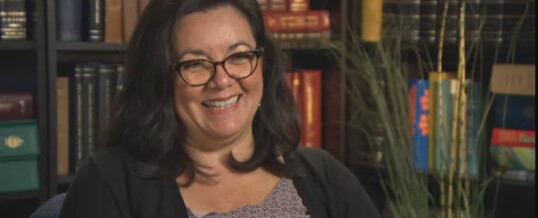
McLeod Group blog, June 30, 2020
Julia Sánchez, the former President-CEO of the Canadian Council of International Co-operation (CCIC), recently took up her new position as head of ActionAid International, a major global development NGO that fights poverty and inequality through a combination of program delivery, research and advocacy. As she was getting ready to leave Ottawa, the McLeod Group interviewed her about her past work at CCIC and upcoming challenges. Yesterday’s blog provided a look back on her work at CCIC. Today’s blog discusses the challenges facing international development NGOs.
Julia identifies northern-based NGOs’ relationship with southern counterparts as a major issue. The need for “localization” is often cited as the way forward. Like the concept of reconciliation between indigenous Canadians and settlers, localization has different interpretations. Julia told us the term originated as part of the “grand bargain” between donors, NGOs and countries receiving humanitarian aid at the United Nations World Humanitarian Summit held in Istanbul in 2016.
The bargain included a greater transfer of resources to local organizations, and recipient involvement in determining responses, as well as a commitment to reducing overlap and duplication. The best of class localization experiments these days are long-term partnerships with northern partners providing core funding, and basing their northern fundraising, education and advocacy on the experience and analysis of their southern partners. Even in these cases, there are tensions about who defines the terms and conditions of localization.
For example, the need for northern NGOs to report back to government donors often creates significant paperwork – and tensions. Canadian NGOs working with southern partners must comply with the onerous terms of Canadian charitable law, including the Income Tax Act’s requirement that they maintain “direction and control” of the use of their funds. Reporting on the use of government funding requires large amounts of time from both partners. Because the major focus is administrative, the paperwork takes away from time that could be spent on what is being learned and how to do better.
Julia reminded us about studies on the proportion of aid actually given directly to southern organizations. CIVICUS, for example, reports that less than 1% of overall aid is allocated in this way (although this figure does not include some northern funding of programs of southern organizations).
This paternalistic relationship extends far beyond administrative issues. Who identifies what development problems should be tackled and how? Particularly for women’s rights and peacebuilding, Julia told us, there is ample evidence that local groups and communities know what is best and are best positioned to react and act.
And donors, whether private or public, ask for “results”: How many lives were saved or livelihoods created? All NGOs struggle with contribution versus attribution. Did our funding save a life, or did it make a difference in conjunction with the contribution of others, not least those of the recipients themselves? When the northern contribution is just financial, who deserves the credit? How do we make the shift in perception of aid recipients from victims to actors? What about identifying and tackling the underlying unfair rules of trade and finance and “might makes right” in conflict resolution?
None of these issues is new. But moving away from current practices is becoming more urgent. Otherwise development programs can only put on Band-Aids, rather than tackle the causes of poverty. Overcoming the implicit racism and neocolonialism in longstanding North/South aid relationships requires both a culture shift and a system shift in how northern and southern NGOs see themselves and how they relate to each other. The response that transformation is impossible because these are the only images that work for fundraising has not been supported by a serious exploration of alternatives.
A major attraction of ActionAid for Julia is that it is a large and important international development NGO with an annual budget of approximately Cdn$300 million. ActionAid is making significant efforts to localize its structure, challenging its internal culture and its systems. It signalled that commitment by moving its headquarters from London to Johannesburg in 2004. Its programs operate in 46 countries with varying degrees of local independence.
For Julia, learning how to make localization work in practice at ActionAid is a worthwhile goal in and of itself, but also important for helping other NGOs learn how to localize. Localization presents northern NGOs with a huge opportunity to change toward a solidarity model, and at the same time, presents the moral challenge of looking at current ways of working as outdated, if not harmful, according to Julia.
There are no easy answers to the type of transformation localization requires. For northern and international NGOs, it likely means:
- becoming smaller, with a greater share of funds going directly to local civil society organizations
- defining different roles for themselves and using more effort in partnerships and networks they don’t control
- pressing for the regulations that govern their relations with individual and government donors to change – a change that the Canadian government has been very slow to undertake
- serious testing of alternatives to northern hero/southern victim fundraising tactics.
It is beyond time that Canadian international development NGOs, their southern partners and their partners in government undertake a serious collective dialogue about the future of the sector and how to support the move away from an outdated charity model toward a solidarity model. Otherwise, NGOs will lose credibility and relevance in a changing world.
Photo: CBC News.
